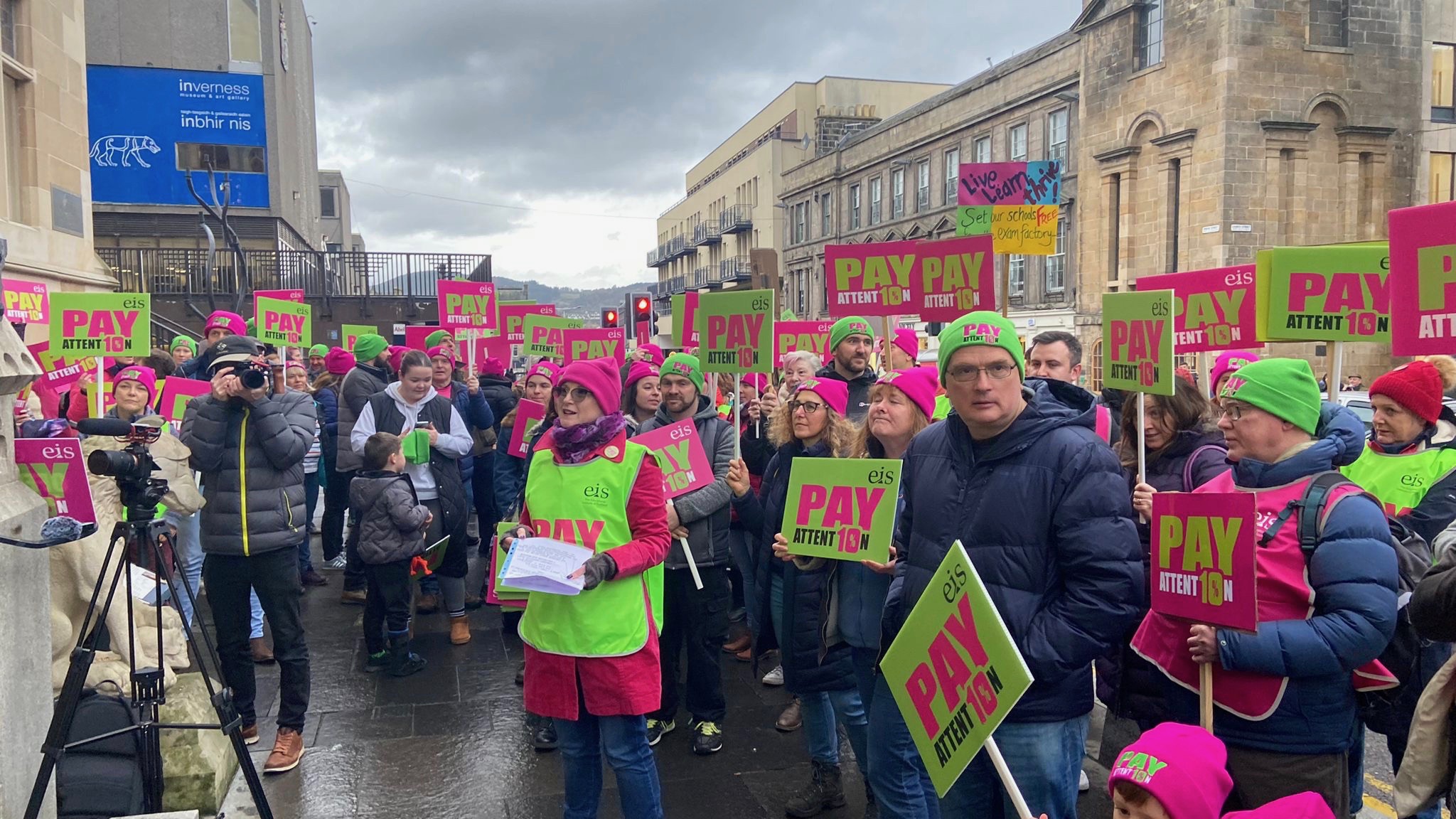School teachers across Scotland are set to intensify their fight for higher wages at par with inflation. Teachers of primary and special schools affiliated to the Educational Institute of Scotland (EIS) union will go on strike on January 10. Secondary teachers affiliated to EIS, NASUWT, and Scottish Secondary Teachers’ Association (SSTA) unions will follow suit on January 11. EIS has also called for rolling strikes across Scotland for 16 working days from January 16 to February 6.
Teachers and their unions in Scotland have been demanding a wage hike of 10% to help them deal with the ongoing cost of living crisis. The unions have rejected the pay offer proposed by the Scottish government and the Convention of Scottish Local Authorities (COSLA) of a 5% rise in general and a 6.85% hike in pay for the lowest-earning teachers.
Teachers across Scotland launched the ‘Pay Attention’ campaign last year demanding a 10% hike in wages. On November 24 last year, they organized a national strike and protest rallies in major cities including Aberdeen, Dundee, Glasgow, Edinburgh, Inverness, and Moray. Activists from the Communist Party of Britain (CPB) and the Scottish Socialist Party (SSP) participated in the rallies and expressed support and solidarity with the protesting teachers.
In the discussions held between unions, COSLA, and the Scottish government last week, the unions reiterated their demand for a 10% hike in wages but the government refused an increase of more than 5%, an offer which had already been rejected by the unions in November. According to reports, more talks are scheduled for Monday, January 9.
Earlier in December, EIS General Secretary Andrea Bradley had said that “as 2022 comes to a close, Scotland’s teachers are still waiting for a pay settlement that should have been paid to them in April. What Scotland’s teachers have been offered by the Scottish Government and COSLA amounts to a record real-terms pay cut of up to 11% in a single year.”
“This is in the context of the value of teachers’ pay dropping by a massive 20% since 2008. It is little wonder that teachers voted so overwhelmingly for strike action, and remain determined to stand firm against the unprecedented pay cuts that have been offered,” she added.
Meanwhile, members of the NASUWT union working in schools and sixth-form colleges are currently voting in an industrial action ballot in England, Scotland, and Wales calling for a fully funded pay award of 12% to teachers. This will be concluded by January 9 and its results will be announced later this week.





